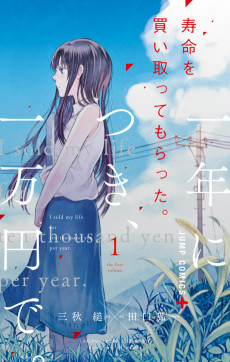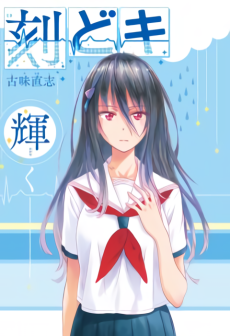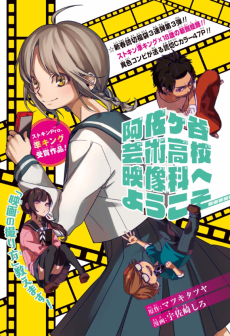SAYONARA ERI
STATUS
COMPLETE
VOLUMES
1
RELEASE
April 11, 2022
CHAPTERS
1
DESCRIPTION
With his mother dying, Yuuta attempts to capture her last days on his phone. After her death, Yuuta heads to the roof of the hospital to commit suicide, but a meeting with a strange girl leads him on the path to making a movie.
(Source: Manga Plus)
Note: The one-shot was compiled in a special volume, released on July 4, 2022.
CAST
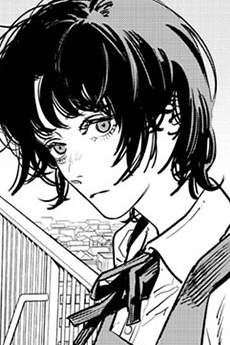
Eri
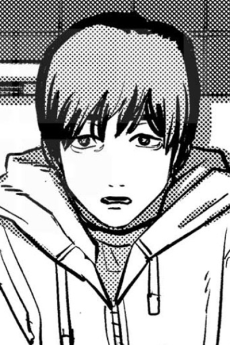
Yuuta Itou
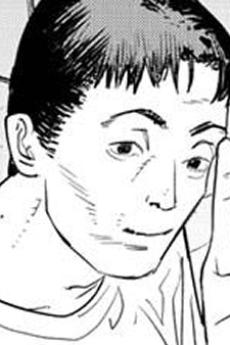
Yuuta no Chichi
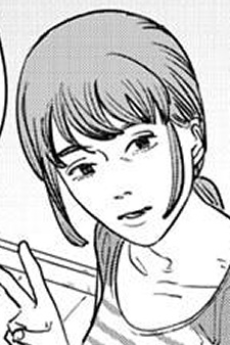
Yuuta no Haha
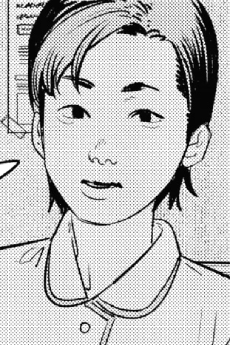
Tauchi
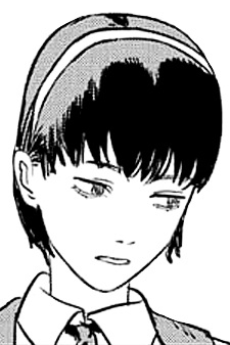
Yuuta no Tomodachi
CHAPTERS
REVIEWS

AshenCant
100/100Digital Loss and GriefContinue on AniListI take a lot of photographs. Last year I took a combined four thousand, three hundred and thirty-four - which averages out to about eleven or twelve a day. Prior years are about the same. I spend a lot of money on SD cards. Almost all of my friends I’ve talked to about Goodbye Eri have reflected on their own lives, their own grief, and their own relationship with archival and art.
The line between performance, creation, and falsification is a thread that links everybody in our current age. As people of all stripes get better at holding cameras, at editing, at correcting, we all collectively understand on some level that there’s so much to the world you never see in the photos. A vista that spreads out in every direction away from you gets flattened into a mere two dimensions, and an expression you hold would fall apart in an angle mere degrees to the left or the right.
Fujimoto arranges the panels here in what feels like screenshots from a movie, or maybe storyboards. Unbroken scenes persist in the mind and in the memory, the tops and bottoms of the frame absorbing the entire page only when he wants them to. Overtly aping film through 21:9ish paneling (that still brings to mind 4koma as much as it does a screen) would come off as stiff and limiting by anybody else, but the easygoing dialogue and weighty subject matter make it readily flow.
And its inspirations do feel incredibly filmic - the premise feels very cinema verite, the blurry digital cameras as a Japanese middle schooler navigates loss and mass media feel very Lily Chou-Chou, and I cannot help but relate Dead Explosion Mother to I Think This Is The Closest To How The Footage Looked.
Remembering the truth is something that takes work. It’s something that you only see in those little moments you’d never think to jot down or record, those frozen conversations that stretch into infinity. Eri forces those into being, dragging strangers into movie marathons, asking to re-record idle conversations, turning pain into something that makes everybody except the sufferer cry. Even afterwards, he can't help but try to tighten it up, re-edit it, and make it bigger and smaller and clearer and safer all at once. It's easier to understand it from there, in something you can replay and rewatch and remember. But, in the end, you have to say goodbye to her.
There’s a sort of “stickiness” to this stuff - it’s much easier to remember the things happening around those photos, even without the original files. I recorded a funeral. The people around me lit lanterns and cast them into the sky. I promised to share it with everybody. My SD card broke on the drive home. Nobody ever asked me for a link.
Maybe it should've ended with a big CGI explosion.
Ry0h
100/100Explores numerous themes in 200 pages which is incredibleContinue on AniListThis review will contain spoilers and my thoughts about the One Shot STORY Starts off with the main character Yuta filming various moments throughout his and his parents lives as we learn his mother is dying and she wants him to remember her through all the recorded videos. She dies at the hospital but Yuta runs away and doesn't film her dying moments. He then makes an edited movie based on the footage of his mother to screen at a school festival but at the end of the movie he makes the hospital explode which makes everyone hate his movie. He feels guilty and was about to commit suicide but he meets this girl named Eri who got him to go to an abandoned building to watch movies with her so he could learn how to make a better movie as she wants him to make a movie that will make everyone cry next time. Eventually, he makes a movie based on her where he describes Eri as a vampire to make the movie more interesting. Eri dies at the end and everyone who watches the movie loves it but he feels it's missing something and he kept re-editing the movie all the way from being in school to his adult life where he has a kid and a wife. Yuta then gets into a car accident with his family where he is the only survivor. After feeling hopeless he goes back to the abandoned mansion which is a special place for him because of Eri. He is shocked to find her watching the movie he made on her and she tells him she is a real vampire and every 200 years her brain dies but her heart lives and her previous self leaves a letter on how to live her life. Even tho Yuta points out she outlives everyone she will know Eri is happy because of the letter she has and the movie Yuta left as she will remember herself and him from the movie. Yuta realizes what was missing from the movie which is an explosion, and the abandoned building gets exploded.
CHARACTERS Yuta The first movie he creates shows the good parts of his mother when in reality she was very mean to him as she was a TV producer. He spends the majority of his time making the movie on his mother which he thinks is very good but he lets everyone's opinion decide that how he ended the movie was wrong. When he makes another movie based on Eri everyone loves it but he truly felt something was missing which was the explosion at the end. This shows that you will only truly be satisfied/happy by doing what u think is right or want to do. Also he was so obsessed with re-editing the 2nd movie that he took his family life when he was an adult for granted as he lost his wife and kid in a car accident this shows that you never know when you can lose something dear to you or you're own life, that you may not always see what you have right in front of you.
Eri She doesn't let Yuta know that she is a vampire at first because what she really wanted was for Yuta to decide for her how she will remember herself and the memories she spent with Yuta, even when she dies again and comes back and long after Yuta is gone as well. Since she is undying she wanted someone and something to cherish forever.
Yutas Mother She was depicted as very kind in the film Yuta made about her but in reality she wasn't very kind to him and the reason Yuta shot the videos in the first place was not to remember her but she wanted to make a TV documentary of her fight against the illness she had as she thought she would recover from it. She was actually always berating him in reality and we find out in her final moments she called Yuta useless for not filming her death. This shows that how people are remembered or who they truly are can change depending on the people you ask basically it shows different points of view about her.
Yutas Father He is full of regret as he knows he should have done something about how Yuta's mother was treating Yuta and he feels that he was the one who actually ran away from his wife's death and his son as he realized that Yuta's film made him remember the good moments about his wife but he inadvertently contributed to his sons suffering.
ART The art was consistent throughout and most of the panels were wide and went from top to bottom to make it feel like scenes and cuts of an actual movie and the full page panels would depict major moments well.
OVERALL Some ppl might feel different about this from me but I think it's very powerful and impacting for a one shot.
Going into this one shot I didn't expect it to have this much that you can pick apart from it but it comes from the genius mind of Tatsuki Fujimoto and I think it solidifies why he is a top mangaka from our generation.
LuminousMagic
100/100Goodbye Eri is a story that blatantly lies to you. And you're going to love being lied to.Continue on AniList
Note: Taken from my blog, link in bio
The Premise
I won’t be spoiling anything major in this review, but the premise is rather simple (at first). A young boy is tasked with recording his dying mother’s final moments, and when he shows the movie to his school, the reaction is unexpected, to say the least. Fujimoto’s author trademarks are all here, the dominant women, beautiful panelwork, a passion for cinema so incredible that you half-expect the manga to turn into an animated movie halfway through, and a charmingly crude sense of humor that doesn’t quite toe the line into complete schlock.
Most of all, Fujimoto showcases his talent for capturing the mundane beauty of everyday life in all of its messy and awkward glory.

Goodbye Eri is a little bit of everything that Fujimoto is known for in terms of story beats and visual language. Something about the way it messes with the reader and takes them on an emotional rollercoaster while telling you that yes, your emotions are being manipulated right now, is so honest that I can’t help but be charmed by the story’s bluntness.

I love the themes of how manipulative media is but at the same time showcasing why it is such a strong tool for dealing with complicated human emotions. Fujimoto understands on a deep level the nuances of human emotion in a way very few other storytellers can do. The story takes you through all these terrible and wonderful events in this one person’s life, and at many points, you start thinking to yourself “which of these events are real?”
Fujimoto’s answer, at least in my opinion, is that it doesn’t matter. Or maybe it does. Like who cares, you’re the one reading the story, feel how you want to feel. The story is purposefully confusing you because, at the end of the day, media is supposed to make you feel things. The narrative might get you there, incredibly striking art might push the point home, but at the end of the day, if a story doesn’t leave an impact on the people who consume it, then what was its point? Nothing.
The Brilliance of Repetition

One thing that I didn’t get to talk about as much in my Look Back review was Fujimoto’s use of repetition in his stories. While I am unaware if there are any interviews where he explains himself, I hope you guys humor my take on why he uses this element so much as a narrative tool. Fujimoto uses repetition in his manga for two things. The first reason is to evoke feelings of nostalgia within the reader while they are reading the manga. Secondly, the repetition is there to enhance the realism of a scene, immersing the reader even further into the characters’ lives.
Take this panel, for example:

The shifts in Eri’s face are so subtle that at a glance, you wouldn’t even consciously notice. However, these small changes in expression are picked up by your brain, and it registers it as not only familiar but real. At some point, you’ve seen people make these slight shifts in expression, and while your conscious mind can’t place why the art looks so familiar at first, your memories certainly do.
The Handheld Feel

Another element that I wanted to bring up quickly is how effectively Fujimoto mimics the visual style of a handheld camera. It’s already difficult enough to mimic that effect in animation, but conveying that same “dynamic” motion into a static page is something else entirely. Fujimoto manages to do so brilliantly with some simple framing choices.

Fujimoto mimics the feel of a handheld camera through things like unflattering closeup angles or “candid” shots of characters not even looking at the “camera”. There are also the artificial blur effects he adds to make the panel look “lowres”, like how a camera would. It’s a simple thing, but the effect is really good.
It almost feels like he takes screenshots of real videos and then just draws over them.
The Characters

Won’t dwell on this part too long, but Fujimoto continues his trend of making unbearably relatable people in his stories. They talk in ways that make readers go “damn, I’ve said that before”, especially if you share Fujimoto’s passion for media. The characters are all fleshed out incredibly well, but as the story keeps pointing out, you don’t actually know any of them at all. You are seeing them through the lens of the story, and after it’s done, you won’t know anymore.

We get so invested in the lives of these characters that are completely fictional, and any emotions we pull from them are purely one-sided. The author won’t know how we felt unless we got out and tell him, and the characters aren’t real, and therefore unable to respond at all. A huge theme of the manga is how creators inject a lot of themselves into their work and glamorize it as a way to cope with their complex emotions. It’s a strange sort of parasocial relationship because the creators themselves aren’t truly showing who they really are, it’s just an idealized (or incomplete) version they want their audience to see.
Conclusion
Goodbye Eri is a beautifully crafted story about the complexities of media, the idea of “knowing someone” you’ve never actually met, and the fleeting beauty of life that humans desperately try to capture through film. With that, I’ve said everything that needs to be said. Well, I haven’t actually, but it’s like 3 A.M. where I am and I need to sleep.
I wanna end this in a meta way, so-

SIMILAR MANGAS YOU MAY LIKE
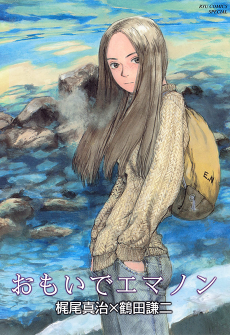 MANGA DramaOmoide Emanon
MANGA DramaOmoide Emanon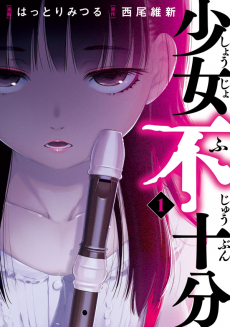 MANGA MysteryShoujo Fujuubun
MANGA MysteryShoujo Fujuubun MANGA ActionChainsaw Man
MANGA ActionChainsaw Man MANGA ActionFire Punch
MANGA ActionFire Punch MANGA ComedyYofukashi no Uta
MANGA ComedyYofukashi no Uta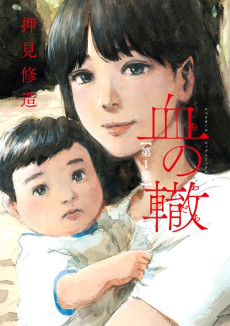 MANGA DramaChi no Wadachi
MANGA DramaChi no Wadachi MANGA AdventureSasurai Emanon
MANGA AdventureSasurai Emanon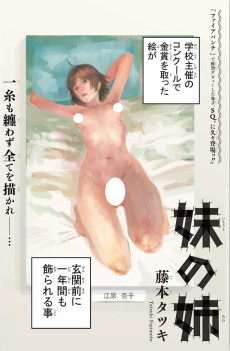 ONE SHOT ComedyImouto no Ane
ONE SHOT ComedyImouto no Ane
SCORE
- (4.25/5)
TRAILER
MORE INFO
Ended inApril 11, 2022
Trending Level 2
Favorited by 5,818 Users


